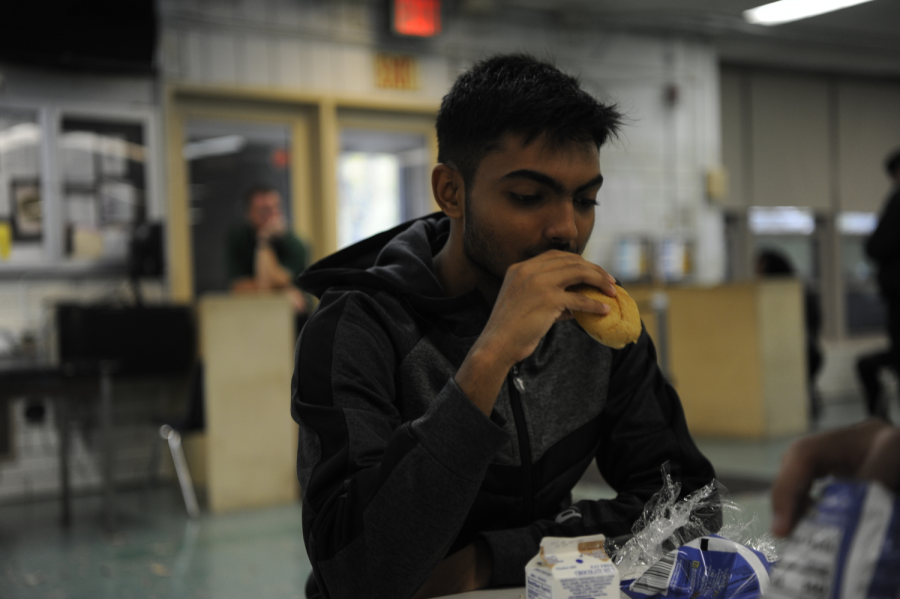A Hunger for Halal
Students Advocate for Greater Diversity in Food
The New York City Department of Education (DOE) recently announced that breakfast and lunch are completely free for all public school students. If this is progress towards school meal accessibility for the over 1.1 million public school students of NYC, then why are nearly 38% of these students still not eating?
The DOE website says that their goal is to always provide options that students of all backgrounds will love. There are many USDA standards that our school food has to meet before it makes it onto our lunch trays. However, meals are still inaccessible for thousands of students across public schools in NYC.
For as long as food has been offered at public school, Muslim students, Jewish students, and students of other cultural backgrounds with dietary restrictions have found it difficult to sustain themselves during the school day. According to the NYC SchoolFood website, on three of every five school days, the main course is a meat-based meal such as a burger or chicken nuggets. There are typically french fries on the plate as well, but a few fries is really not enough food to fuel a high school student for an entire day. The website also says there is always an alternative to the main lunch, which only includes a PB&J sandwich, a cheese sandwich, and a turkey sandwich.
“Halal food will allow communities to band together and enjoy some good meals.”
For many students, these choices do not offer much variety. “It gets tiring to eat [these alternatives] almost every lunch period five times a week for the whole year! They’re not meals. Others get to have an option between different burgers and don’t really have a way to empathize,” said Rajaa Elhassan ’19. Elhassan has been attending public school her entire life and has always had this problem. She has been told to just buy lunch from one of the food trucks outside or bring lunch from home every day. However, she says that hundreds of students wake up at about 6 A.M. and do not have time to either eat a substantial breakfast or bring food to school. She also says, “How come available food is free for everyone else, but we have to go out of our way for it? If you have a significant portion of your student population eating only halal or only kosher– you’re not giving them accessibility to that food.”
Elhassan is not alone. “My little brother would come home and tell me about how he’d eaten nothing or just some fruit, that the majority of the food is haram and he can’t eat that. As his sister and someone who knows the feeling, it hurt to know that this kid is eight years old and this has been his situation for the past few years, and will continue to be so unless something changes,” said Madina Monowara ’20.
However, there is hope for change. Multiple politicians have been pushing for “a step in the right direction,” like City Councilman Chaim Deutsch, who has been advocating for halal and kosher NYC DOE lunches in recent years. State Assemblyman David Weprin has also introduced legislation requiring public schools to offer food that accommodates religious dietary restrictions. He recognizes the growing diversity in schools and the importance of honoring and respecting each other’s religions in an interview with ‘The New York Post’ in 2017. Weprin even compares the schools’ lunch plans to those in prisons and points out that even prisons have halal and kosher options. Congresswoman Grace Meng said in an address to City Council member Corey Johnson in June 2018, “The N.Y.C. school system is the largest and most diverse school system in the country. We must do all we can to ensure that our school lunch program is as inclusive to the different needs of our students as possible.”
“I want to be able to eat what I [can] eat without having to struggle to find a halal option. I believe that in order to be a more inclusive society and bring people together, which food does do, halal food will allow communities to band together and enjoy some good meals,” said Rahma Tasnim ’19.
Eshika Talukder is the Spotlight editor for ‘The Science Survey’ and an Athletics Section Reporter for ‘The Observatory.’ She believes that journalistic...











